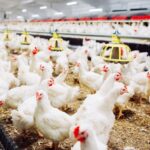Organic farming is gaining traction globally as a sustainable and environmentally friendly approach to agriculture. In South Africa, where diverse climates and soil types present unique opportunities and challenges, transitioning to organic farming can offer numerous benefits. Here’s an introduction to organic farming tailored for South African farmers, covering key concepts, benefits, and practical tips for making the transition.
What is Organic Farming?
Organic farming is an agricultural system that promotes environmentally sustainable practices by avoiding synthetic chemicals, genetically modified organisms (GMOs), and artificial additives. Instead, it focuses on natural processes, biodiversity, and soil health to produce food.
Key Principles of Organic Farming
- Soil Health: Organic farming emphasizes the importance of maintaining healthy, fertile soil. Practices such as crop rotation, cover cropping, and composting enhance soil structure and fertility.
- Biodiversity: Encouraging a diverse range of plants and animals on the farm supports ecological balance. Organic farms often integrate multiple crops, beneficial insects, and natural predators.
- Natural Pest Management: Instead of relying on chemical pesticides, organic farming uses natural methods for pest control. This includes introducing beneficial insects, using biological control agents, and implementing physical barriers.
- Sustainable Practices: Organic farming focuses on sustainable resource management. This includes water conservation, reducing waste, and minimizing the use of non-renewable resources.
Benefits of Organic Farming
- Environmental Impact: Organic farming reduces pollution by avoiding synthetic chemicals and promoting practices that conserve water and soil. It also supports biodiversity and reduces the carbon footprint of farming.
- Soil Fertility: Organic practices improve soil health by enhancing organic matter content and promoting beneficial microbial activity. This leads to better water retention and soil structure.
- Healthier Produce: Organic foods are grown without synthetic pesticides or GMOs, which can be appealing to health-conscious consumers. Organic farming also promotes the production of nutrient-rich crops.
- Market Demand: There is growing consumer demand for organic products in South Africa and internationally. Organic certification can open new market opportunities and potentially increase profitability.
Tips for Transitioning to Organic Farming
- Start Small: Begin with a small area or a few crops to test organic practices and assess their impact. Gradually expand as you gain experience and confidence.
- Soil Management: Focus on improving soil health through composting, green manures, and natural fertilizers. Regular soil testing can help you understand nutrient needs and avoid deficiencies.
- Pest Control: Implement integrated pest management (IPM) strategies, including crop rotation, planting pest-resistant varieties, and using organic pest control methods.
- Certifications and Standards: Familiarize yourself with organic certification requirements from relevant bodies such as the South African Organic Sector Organization (SAOSO). Certification can enhance credibility and access to organic markets.
- Education and Training: Invest in learning about organic farming techniques through workshops, courses, and local agricultural organizations. Networking with other organic farmers can provide valuable insights and support.
- Record Keeping: Maintain detailed records of your farming practices, inputs, and yields. This will help track progress, manage resources effectively, and meet certification requirements.
- Community Involvement: Engage with local communities and farmers’ groups to share knowledge, collaborate on projects, and build a support network for organic farming.
Organic farming offers a sustainable approach to agriculture that aligns with environmental stewardship and consumer preferences. For South African farmers, transitioning to organic methods can enhance soil health, support biodiversity, and open new market opportunities. By starting small, investing in education, and adhering to organic principles, farmers can successfully adopt organic practices and contribute to a more sustainable agricultural future.
Join 'Farmers Mag' WhatsApp Channel
Get the latest Farming news and tips delivered straight to your WhatsApp
CLICK HERE TO JOIN






